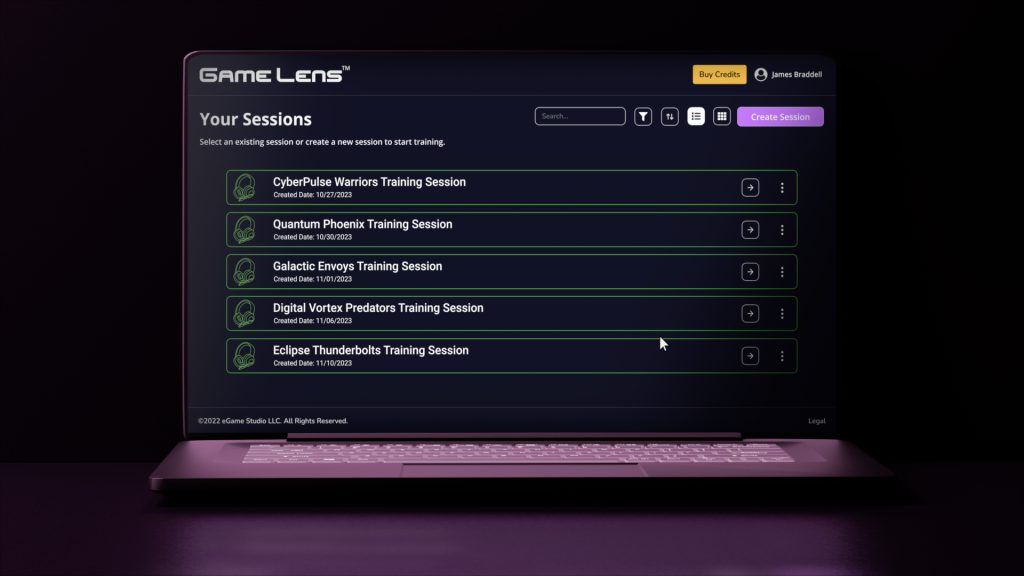
Esports has gone far beyond just people playing games. The industry has undergone a wave of professionalism leading to a wide array of jobs, and players at the top level competing in arenas for millions of dollars.
However, despite this, there is still somewhat of a stigma attached to gaming and esports. Whilst this is shifting as generations grow up within gaming culture, there is still a need to educate parents on the potential esports can offer, particularly at a grassroots and scholastic level.
Schools have begun to adopt esports as a way of connecting with students, both at high school or university level. However, for esports to go beyond just being a good social cause, a level of structure is needed for esports clubs and programmes.
With that, the development of esports coaching — an integral part of scholastic esports — is crucial.
Why embracing esports is worthwhile
Before discussing coaching, it’s important to break down esports’ importance in grassroots communities and schools.
One of esports and gaming’s biggest deterrents to parents is its inherent virtual nature. Given that most of the time gaming is seen as a more isolated hobby at home, particularly with the dominance of online gaming, there are fears of addiction and negative effects on mental health. The UK’s health body NHS even has a service to help children and young adults who suffer from Gaming Disorders.
However, whilst these risks exist, serious cases of addiction are few and far between. According to an OFCOM report, 89% of UK children aged between 3-17 played video games in 2022, across various devices. Given gaming’s popularity, topics have shifted in recent years as to how to embrace gaming to ensure that it can positively affect individuals — with esports being one solution.
Esports is a competitive activity in which players compete against each other — either in teams or as individuals — in games. As such, there are already social skills that can be developed, notably communication, teamwork and decision-making. As educational institutions become more accepting of the sector, through the development of esports initiatives, these skills can be taught in a more structured environment and under supervision.
In 2019, for example, Glebe School in Bromley, London noted that 96% of students who took part in the British Esports Federation’s programme said that esports helped their social skills. Some of the reasons included mixing with other students, watching matches and sharing ideas.
This year, NASEF’s research partner, the UC Irvine-based Connected Learning Lab, noted that 23% of parents whose children engaged in esports through the scholastic esports federation said their child’s GPA went up.

To go even further, with esports coaches at a school or grassroots community’s disposal, there are opportunities to utilise competitive games to help develop core STEM skills. In the US, esports in middle schools (ages 11-13) are becoming more popular, with esports tournaments such as the Middle School Esports League (MSEL) pitting children in education institutions against each other in organised competitions across several games.
Outside of the competitive nature of esports, the growing professionalism of the sector has led to an entire industry being built around it, similar to that of traditional sports scenes. As such, esports courses and degrees have also started to come to fruition, a response to the range of careers available in the esports industry.
Creating structured esports clubs
Whilst the benefits of having esports initiatives in education are getting noticed, it’s equally as crucial to ensure that proper systems are put in place. Unfortunately, this could come with drawbacks such as financial restraints, or a lack of space to host clubs and community meetups.
Moreover, it’s equally as important to have the correct individuals leading these initiatives and clubs in order to help coach and develop in-game esports skills, as well as out-of-game talents like leadership, teamwork and communication.
There is a need to not only train esports players but to train reliable esports coaches at a grassroots level. As such, companies such as Iceland’s Esports Coaching Academy have programmes designed to train coaches and provide coaching to players in order to execute youth esports programmes.
Moreover, in order to minimise the financial burden of creating coach-led esports communities and clubs, new technologies are springing up. This includes Game Lens, a new esports coaching platform that enables training to occur online as opposed to in a LAN environment.
“The budgets required to establish comprehensive esports programmes remain a barrier for many schools,” stated Michael Lunt, the Founder of Game Lens’ parent company eGame Studio.
“We recognise that much of the necessary equipment already exists in students’ homes, and it can be leveraged to the student’s benefit using Game Lens. We also understand that gaming at school comes with parental concerns, which is why purposeful coaching is so important. However, coaching on-site and remotely each has limitations regarding team-based gameplay visibility. We think it’s time that all esports coaches have the same opportunities to coach like ‘traditional sports’ by seeing all their players at once.”

Game Lens’ platform allows the coach to have access to every player’s game-view, as well as voice communications, to provide live feedback directly to players while training. Notably, this solution allows educational institutions to launch after-school clubs online if needs be, vitally saving money for those without dedicated esports facilities.
The negative stigma of gaming and esports is starting to fade away. However, new solutions catering to the grassroots and education spaces are still necessary in creating positive developments for children and young adults.
These solutions can provide more guidance for children and young adults wanting to enter esports, both from a competitive or industry-focused level. Moreover, by tapping into a growing sector, schools and grassroots communities are able to instil skills that go way beyond esports — under the caveat that proper structures and coaching systems are met.
This article is supported by Game Lens
